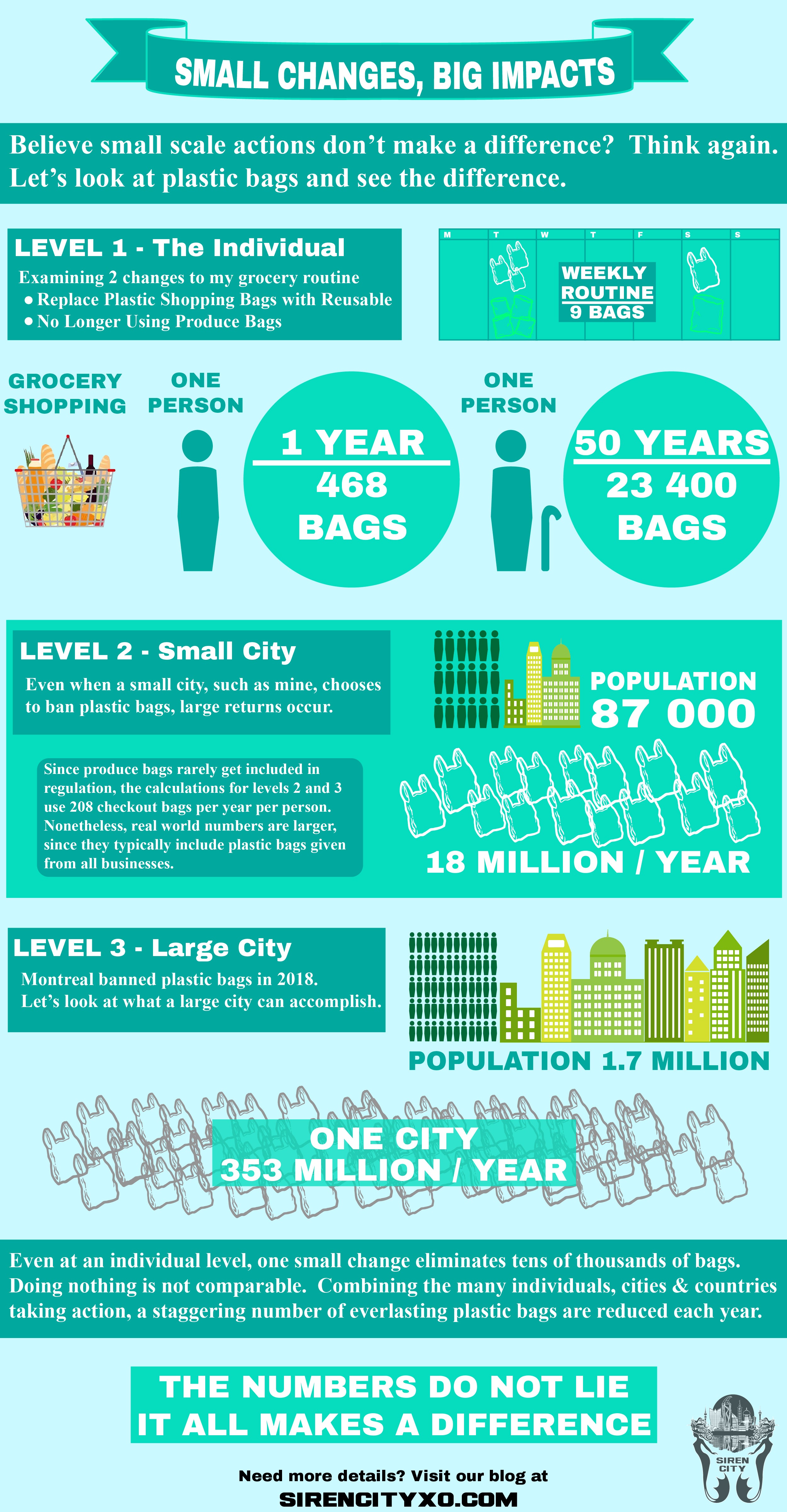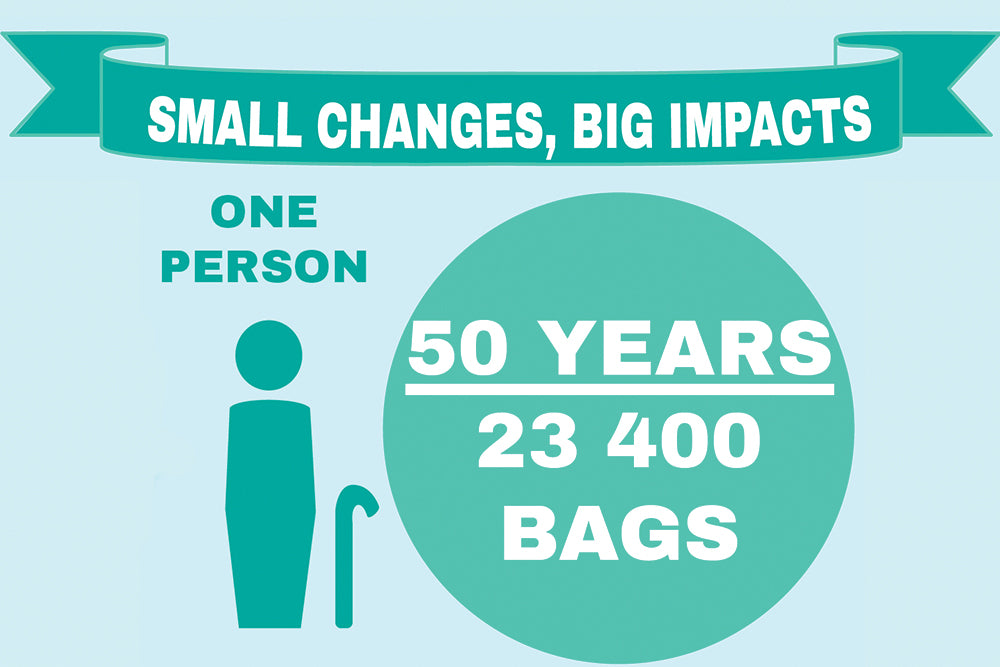Small Changes, Big Impacts
Recently I was talking with a friend about the plastic bag band that had happened in our city and I championed how much I supported it. I admitted that when discussion first began about a plastic bag ban, I thought it wasn’t a big enough step, and perhaps it was insignificant in the big picture. What effect could a small city have on an enormous problem? Does it really make a difference? Though I had abandoned that line of thinking some time ago, I was now facing it again from my friend. Their biggest argument was that it needed to be a bigger authority casting a broader stroke. Small actors couldn’t possibly impact big problems for meaningful progress.
It is correct to argue that bigger action is required to completely reverse the negative impact our species has leveled. However, doing nothing is not equal to taking small actions. This has to be stressed. One person’s or city’s or country’s action will not fix the problem, but do not equate that with no change. Math and statistics, as invigorating as ice melting, nonetheless provide extraordinary supporting evidence.
The Individual Level
I switched over to a reusable bag a few years ago. I typically hit the grocery store once a week for a main shop and another time on the weekend to grab some random things. The main shop would require 3 plastic bags on average and I would use 1 more on the weekend. My most unvarying routine would produce 208 plastic bags in a year. Eventually I stopped using plastic bags for produce, since I’d be washing the veggies at home anyways, which eliminated another 5 each week, 260 over the year. Just this week I realized I should be re-using the same bag for the buns I buy each week, that eliminates another 52.
Through very small changes in just my grocery shopping habits I eliminated 520 plastic bags as a single person per year. Over an adult life span of 50 years, that’s 26 000 bags from a single person.
The Small Town Level
Let’s expand this idea to my city that has adopted a plastic bag ban. I’m going to reduce the numbers I include to only check out bags because produce bags have not been banned, and people still readily use them for things as ridiculous as avocados and oranges. So I’ll move forward with 208 bags per person to get a very rough estimate.
The ban only applied to the core city center, with 85,000 residents. Nonetheless that’s 17 680 000 bags eliminated every year. If the ban were expanded to the greater metropolitan area of 367 000 residents, it would cut 76 336 000 bags. Can anyone argue against eliminating 17 million plastic bags per year? Especially when it requires a tiny amount of individual effort to change a habit. Not bad for a small town.
The Big City Level
Expand that to bigger cities, say like Montreal, population 1.7 million, who banned the bag and the numbers climb to unshakeable quantities, 353 million for Montreal alone per year. Globally, a long list of actors taking action exists, from states like California to Hawaii, to countries like Rwanda, Kenya and Italy that have worked to ban and decrease use. The biggest trend I noticed is that change has happened below the national level more often than not. The huge decreases in plastic bag creation have happened predominantly at the city and province/state level than the federal level.
The smaller actors are achieving huge impacts. If all these small players did nothing while waiting for bigger ones to make a decision, humans would have generated trillions of additional plastic bags in the interim (and would likely still be waiting for action. The higher the power the more corruptible through money).
Perhaps counter-intuitively for many people, small changes on big consumption problems actually create significant change at exceptionally fast rates because the numbers are so massive to begin with.
When you start making personal changes it can seem like your impact is equivalent to a drop of water wetting a single piece of sand on a long beach. View yourself as part of a rising tide, affecting millions of pieces of sand together. Next time I’m talking with a friend I’ll be more firm in arguing that in the end no change is too small, because progress never happens all at once, and cutting your waste by a little will always better than no reduction at all.
We created an Infograph to highlight what we discovered. Feel free to use and share around. Download JPG | Download PDF


